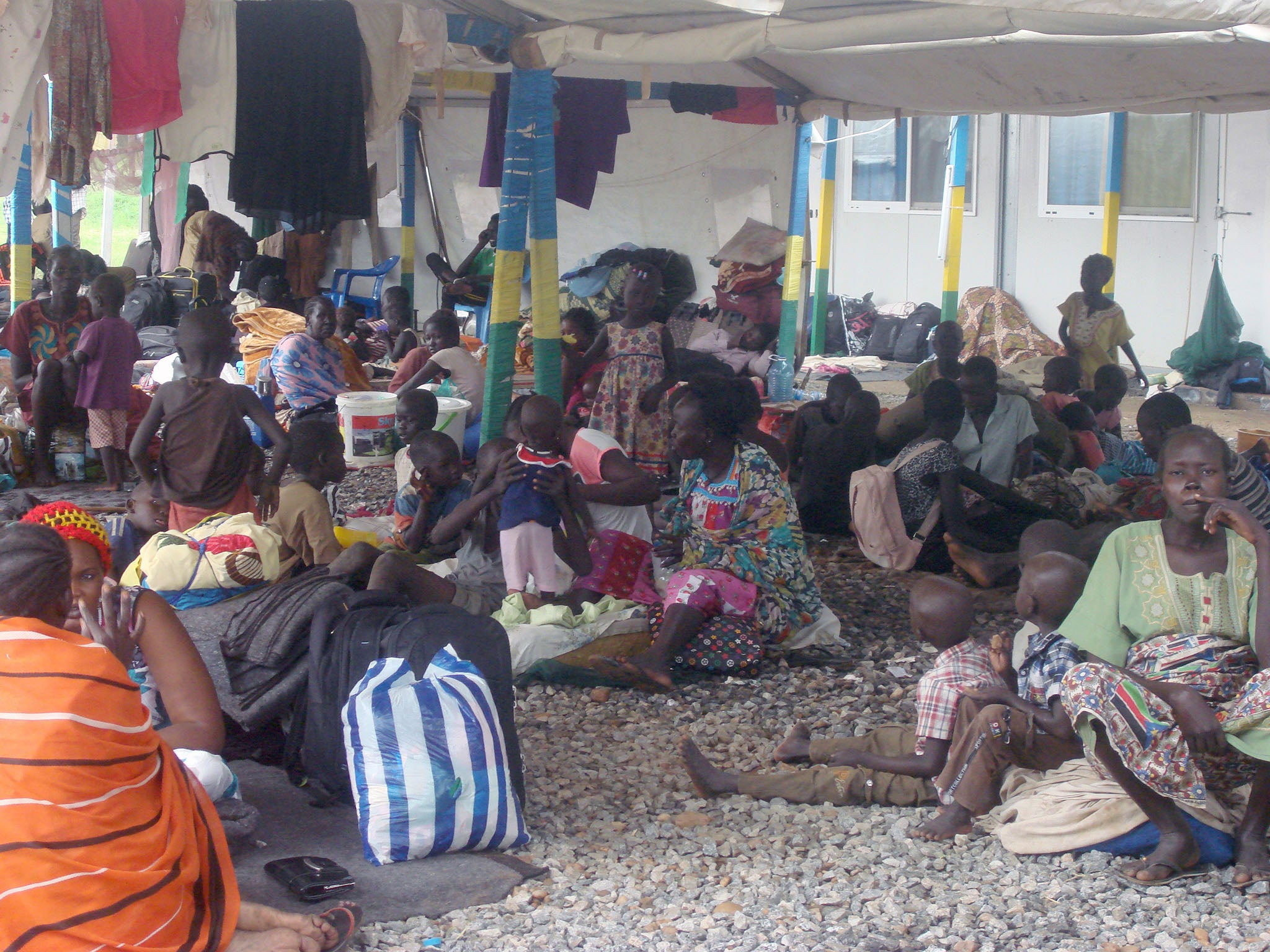South Sudan ceasefire holds as UN warns that attacks may constitute war crimes
Humanitarian crisis now looms as residents surface from shelters

Your support helps us to tell the story
From reproductive rights to climate change to Big Tech, The Independent is on the ground when the story is developing. Whether it's investigating the financials of Elon Musk's pro-Trump PAC or producing our latest documentary, 'The A Word', which shines a light on the American women fighting for reproductive rights, we know how important it is to parse out the facts from the messaging.
At such a critical moment in US history, we need reporters on the ground. Your donation allows us to keep sending journalists to speak to both sides of the story.
The Independent is trusted by Americans across the entire political spectrum. And unlike many other quality news outlets, we choose not to lock Americans out of our reporting and analysis with paywalls. We believe quality journalism should be available to everyone, paid for by those who can afford it.
Your support makes all the difference.People have started to emerge from makeshift shelters in South Sudan's capital after a ceasefire silenced days of heavy fighting that has destabilised the world's newest nation.
Forces loyal to President Salva Kiir and Vice-President Riek Machar have been battling each other with anti-aircraft guns, attack helicopters and tanks since Thursday – almost five years to the day since South Sudan declared independence from Sudan with promises of aid and support from world powers.
“We don't even know what is happening. These things, they just happen again and again, and the people of South Sudan are suffering. We need peace,” Samson Kenyi, a 34-year-old motorcycle taxi rider said in the capital, Juba.
The violence has raised fears of a collapse of a near year-old peace deal that was supposed to end two years of ethnically charged civil war between Mr Kiir and Mr Machar's supporters. Both leaders deny responsibility for starting the violence and called for calm while it raged, leading to concerns that they have lost control of their forces or other political figures may be involved.
A ceasefire called on Monday night appeared to hold and officials from Mr Machar's side said he was ready for talks. But there were no details of a meeting or an accord.
Shops were shut and residents said some of the civilians who ventured out were walking down Juba's dusty streets towards UN bases, where thousands have already sought safety during the clashes. Those unable to reach the UN bases, huddled in churches and schools to escape the fighting.
“Some of the many displaced from the recent fighting have come out to stretch their legs a little bit. They are in the streets. They are not moving far,” said Jeremiah Young, a policy and peace-building adviser for the aid group World Vision. “The humanitarian needs are going to be very great after this,” Mr Young added. “They are going to need food, they are going to need shelter, they are going to need water.”
The UN called for those uprooted by fighting to be protected, and for easy movement of humanitarian supplies and the African Union has said anyone violating the ceasefire would “be subjected to stern measures, including targeted sanctions”.
The EU and US have previously imposed sanctions on several military leaders on both sides. But world powers and regional states have struggled to find much leverage over the two men and their forces.
The rival leaders, who have long fought in politics and on the battlefield, could meet or hold telephone talks to shore up the ceasefire, Mr Machar's spokesman, James Gatdek Dak, said, adding that it was not clear when such talks might take place, or that a venue had been agreed.
“Machar is committed to implementation of the peace agreement. If Kiir can reciprocate I believe they can build confidence,” he said. “If one party is not committed to implementation of the peace agreement, I doubt that they will successfully agree to work together.”
An international body, the JMEC, chaired by Festus Mogae, a former president of Botswana, was set up to monitor the ceasefire and peace deal implementation. Machar's spokesman said the JMEC was mediating, but it had no immediate comment.
The civil war broke out in December 2013 after Mr Kiir sacked Mr Machar. The fighting, which often follows ethnic lines, pitting Mr Machar's Nuer group against Mr Kiir's Dinka, has killed thousands of people, driven more than 2.5 million people from their homes and left almost half the nation of 11 million struggling to find enough food.
Oil production, a vital revenue source for the impoverished nation, has plummeted.
Mr Kiir's officials have said he is committed to working with Mr Machar to end the conflict. A peace deal was signed in August 2015 but was followed by months of wrangling over details and sporadic fighting around the country. Mr Machar returned to Juba in April, retaking the post of Vice-President, a move seen as a step towards securing the peace.
But the relationship remains brittle and experts say the failure to implement elements of the peace deal, such as integrating their rival forces, has increased the chance of further fighting.
Mr Machar's side says the flare-up on Thursday, which led to the street battles, was triggered by the shooting of one of the Vice-President's officers.
The US has condemned the violence and said it would hold those who commit atrocities or impede efforts to stop the fighting “fully accountable”.
It has demanded that Mr Kiir and Mr Machar rein in their forces and said attacks on civilians or UN bases, which were hit in the exchange of fire, could amount to war crimes that would need to be investigated. Reuters
Join our commenting forum
Join thought-provoking conversations, follow other Independent readers and see their replies
Comments